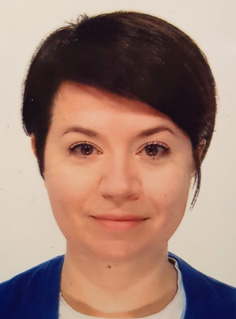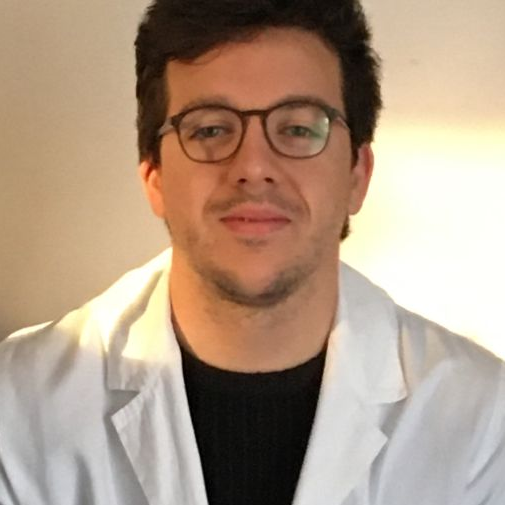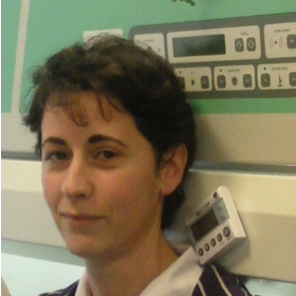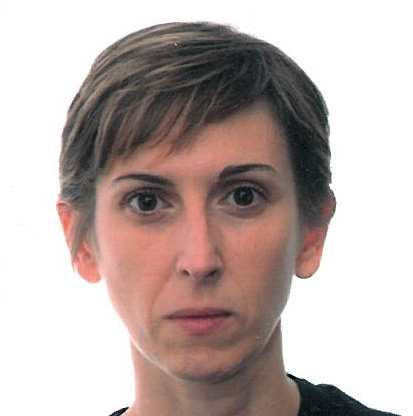Molecular Oncology
Laboratory of Molecular Oncology
The group of the Molecular Oncology Laboratory at the Center for Advanced Studies and Technology (CAST) is led by Nicola Tinari, MD, PhD. He is an Associate Professor of Medical Oncology at the G. D’Annunzio University Medical School of Chieti-Pescara and a practicing oncologist at the “SS. Annunziata” Hospital, Chieti. The group is mainly focusing on the characterization of tumor biomarkers and their evaluation as prognostic and predictive factors of response to treatments. Since metastases account for the majority of cancer-related deaths, of special relevance are biomarkers of the metastatic propensity of cancer, which may be useful in the identification of candidate patients to more aggressive treatments. On the other hand, predictive factors may be even more relevant from a clinical viewpoint, as they allow the tailoring of treatment, i.e. to choose the right treatment for a particular patient.
Currently, research activities are devoted to the investigation of the Galectin 3 binding protein (LGALS3BP, also known as 90K), a ubiquitous multifunctional secreted glycoprotein found elevated in the serum of patients with cancer and HIV infection. This highly glycosylated protein appears to be implicated in immune response and its elevated expression, in the serum or tumor tissue, was associated with low survival rate, cancer progression, and metastasis in breast, hepatocellular, lung, prostate, and ovarian carcinoma. Clinical data suggest its relevance as a biomarker of advanced tumor and its correlation with poor-survival. Moreover, it plays a pro-metastatic role through its ability to promote angiogenesis, cell-cell and cell-extracellular matrix adhesion. Recently, the group has investigated the role of LGALS3BP gene expression in the pro-metastatic and immune-suppressive effect of TGF-β1. The role of TGF-β1 in the process of cancer invasion and diffusion, and its contribution to the creation of an immune-suppressive tumor microenvironment is well established and has led to the development of pharmacological inhibitors of the TGF-β signaling. The group demonstrated that TGF-β1 increases LGALS3BP transcription, binding the upstream stimulatory factors, USF1 and USF2, suggesting an up-regulation of the pro-adhesive protein LGALS3BP, which may have biological implications for tumor progression in the context of the changes induced by TGF-β1 in the tumor microenvironment.
Moreover, the Molecular Oncology group is characterizing LGALS3BP regulation by microRNAs, i.e. small, non-coding RNAs that negatively modulate gene expression at the post-transcriptional level, through binding to the 3′-untranslated region (3′UTR) of their target genes in a sequence-specific way. The deregulation of these microRNAs may have a key role in the overexpression of LGALS3BP protein leading to tumor progression and metastasis.
In the same research unit, Dr. Rossella Grande (Ph.D. and Assistant Professor in Microbiology) is the group leader of specifies research fields:
1. The study of genetic variability, antimicrobial susceptibility pattern, and virulence of Helicobacter pylori strains isolated from patients affected by severe gastric diseases: It has been widely suggested that the eradication of H. pylori infection represents a useful strategy for preventing gastric cancer. The increasing antibiotic resistance reported in H. pylori versus the recommended treatment therapies, supports the necessity to identify new eradication strategies. The aim of the research is to study H. pylori virulence and pathogenesis to evaluate the most suitable strategies aimed at eradicating the microorganism. H. pylori virulence and pathogenesis can be demonstrated by the production of virulence factors, biofilm formation, the VBNC (Viable but Non-Culturable) state, and the release of Outer Membrane Vesicles (OMVs).
2. The study of the microbial biofilms and their components such as carbohydrates, proteins, and nucleic acids of Gram-positive and Gram-negative bacteria aimed at biofilm eradication: Analysis of the role of extracellular vesicles and associated eDNA in the biofilm developed by Gram-positive and Gram-negative microorganisms.
3. Discovery of innovative therapies aimed at biofilm eradication: Antimicrobial tolerance is due to different mechanisms such as the presence of an extracellular matrix that does not allow or slow the penetration of drugs as well as the presence of a metabolic dormancy adopted by many cells inside a biofilm. The study is focused on the investigation of new antimicrobials and anti-biofilm agents capable of controlling or eradicating biofilm infections. These novel compounds, either of synthetic or natural origin, could induce biofilm removal as well as inhibition of biofilm formation.
4. The study of the characteristics of probiotic strains: The study of the characteristics of specific probiotic strains as well as the potential effects of molecules or compounds produced by probiotic strains in different medical fields.
- Brocco, D. et al. Phenotypic and Proteomic Analysis Identifies Hallmarks of Blood Circulating Extracellular Vesicles in NSCLC Responders to Immune Checkpoint Inhibitors. Cancers 13, doi:10.3390/cancers13040585 (2021).
- Pagotto, S. et al. A perspective analysis: microRNAs, glucose metabolism, and drug resistance in colon cancer stem cells. Cancer gene therapy, doi:10.1038/s41417-021-00298-5 (2021).
- Marinelli, D. et al. Neoadjuvant Immune-Checkpoint Blockade in Triple-Negative Breast Cancer: Current Evidence and Literature-Based Meta-Analysis of Randomized Trials. Cancers 12, doi:10.3390/cancers12092497 (2020).
- Brocco, D. et al. The Role of Dysfunctional Adipose Tissue in Pancreatic Cancer: A Molecular Perspective. Cancers 12, doi:10.3390/cancers12071849 (2020).
- Parisi, A. et al. Evaluation of Second-line Anti-VEGF after First-line Anti-EGFR Based Therapy in RAS Wild-Type Metastatic Colorectal Cancer: The Multicenter "SLAVE" Study. Cancers 12, doi:10.3390/cancers12051259 (2020).
- Krasniqi, E. et al. Impact of BMI on HER2+ metastatic breast cancer patients treated with pertuzumab and/or trastuzumab emtansine. Real-world evidence. Journal of cellular physiology 235, 7900-7910, doi:10.1002/jcp.29445 (2020).
- Florio, R. et al. The Benzimidazole-Based Anthelmintic Parbendazole: A Repurposed Drug Candidate That Synergizes with Gemcitabine in Pancreatic Cancer. Cancers 11, doi:10.3390/cancers11122042 (2019).
- Cindolo, L. et al. Persistence and adherence to androgen deprivation therapy in men with prostate cancer: an administrative database study. Minerva urologica e nefrologica = The Italian journal of urology and nephrology 72, 615-621, doi:10.23736/S0393-2249.19.03595-1 (2020).
- Brocco, D. et al. Circulating Cancer Stem Cell-Derived Extracellular Vesicles as a Novel Biomarker for Clinical Outcome Evaluation. Journal of oncology 2019, 5879616, doi:10.1155/2019/5879616 (2019).
- Grassadonia, A. et al. Impact of primary tumor location in patients with RAS wild-type metastatic colon cancer treated with first-line chemotherapy plus anti-EGFR or anti-VEGF monoclonal antibodies: a retrospective multicenter study. Journal of Cancer 10, 5926-5934, doi:10.7150/jca.34550 (2019).
- Krasniqi, E. et al. Immunotherapy in HER2-positive breast cancer: state of the art and future perspectives. Journal of hematology & oncology 12, 111, doi:10.1186/s13045-019-0798-2 (2019).
- Lattanzio, R. et al. PLC-gamma-1 phosphorylation status is prognostic of metastatic risk in patients with early-stage Luminal-A and -B breast cancer subtypes. BMC cancer 19, 747, doi:10.1186/s12885-019-5949-x (2019).
- Pizzuti, L. et al. Distinct HR expression patterns significantly affect the clinical behavior of metastatic HER2+ breast cancer and degree of benefit from novel anti-HER2 agents in the real world setting. International journal of cancer 146, 1917-1929, doi:10.1002/ijc.32583 (2020).
- Graziano, V. et al. Combination of peripheral neutrophil-to-lymphocyte ratio and platelet-to-lymphocyte ratio is predictive of pathological complete response after neoadjuvant chemotherapy in breast cancer patients. Breast 44, 33-38, doi:10.1016/j.breast.2018.12.014 (2019).
- Grassadonia, A. et al. Effect of Gender on the Outcome of Patients Receiving Immune Checkpoint Inhibitors for Advanced Cancer: A Systematic Review and Meta-Analysis of Phase III Randomized Clinical Trials. Journal of clinical medicine 7, doi:10.3390/jcm7120542 (2018).
- Pizzuti, L. et al. Palbociclib plus endocrine therapy in HER2 negative, hormonal receptor-positive, advanced breast cancer: A real-world experience. Journal of cellular physiology 234, 7708-7717, doi:10.1002/jcp.27832 (2019).
- Veschi, S. et al. Effects of repurposed drug candidates nitroxoline and nelfinavir as single agents or in combination with erlotinib in pancreatic cancer cells. Journal of experimental & clinical cancer research : CR 37, 236, doi:10.1186/s13046-018-0904-2 (2018).
- Locatelli, M. et al. FPSE-HPLC-DAD method for the quantification of anticancer drugs in human whole blood, plasma, and urine. Journal of chromatography. B, Analytical technologies in the biomedical and life sciences 1095, 204-213, doi:10.1016/j.jchromb.2018.07.042 (2018).
- Kabir, A. et al. Fabric phase sorptive extraction-high performance liquid chromatography-photo diode array detection method for simultaneous monitoring of three inflammatory bowel disease treatment drugs in whole blood, plasma and urine. Journal of chromatography. B, Analytical technologies in the biomedical and life sciences 1084, 53-63, doi:10.1016/j.jchromb.2018.03.028 (2018).
- Cecamore, C. et al. 90K immunostimulatory glycoprotein in children with juvenile idiopathic arthritis. Modern rheumatology 28, 637-641, doi:10.1080/14397595.2017.1397895 (2018).
- Gamucci, T. et al. Neoadjuvant chemotherapy in triple-negative breast cancer: A multicentric retrospective observational study in real-life setting. Journal of cellular physiology 233, 2313-2323, doi:10.1002/jcp.26103 (2018).







